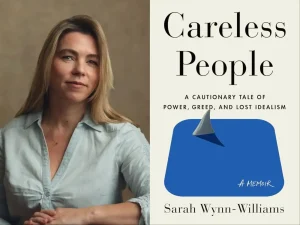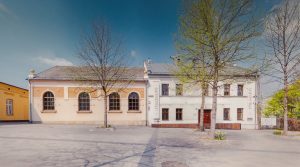 The rising tide of intermarriage is forcing Jewish communities across Canada to consider the question of joint burial for interfaith couples. The rule has been that Jewish cemeteries are for Jewish burial only. But that’s beginning to change.
The rising tide of intermarriage is forcing Jewish communities across Canada to consider the question of joint burial for interfaith couples. The rule has been that Jewish cemeteries are for Jewish burial only. But that’s beginning to change.
Rabbi Larry Dolgin
“In the past year, we have set aside a section of our cemetery where interfaith couples can be buried side by side,” said June Avivi of Saskatoon’s chevra kadisha (burial society).
“It’s a concept that is under discussion in many North American Jewish communities.”
Avivi said that so far, there has been only one Jewish burial in the designated section.
“He was a member of our congregation, but his spouse wasn’t, because she isn’t Jewish,” Avivi said. “She supported him though.”
In Toronto, Temple Sinai has purchased a section of the Lambton Hills Cemetery in the city’s west end to permit the burial of interfaith couples. The section will accommodate 130 burial plots and be made available to other congregations whose members cannot be buried together in Jewish-only cemeteries, said Rabbi Michael Dolgin, senior rabbi at Temple Sinai.
The plots will be available to members of recognized congregations and will be offered for sale once the synagogue receives the necessary government permits to operate the cemetery section, he said.
“We look at it as a bridge issue,” Rabbi Dolgin said, “I think we, with other congregations, hope it will work as a bridge for five to 10 years to give the community time to come up with space for a new cemetery.”
Rabbi Dolgin said efforts to find a solution for couples of mixed marriages began some six to eight years ago, when “in the course of six months, three current members came and sat in my office and said either they or their spouse was expected to die.”
They asked if he could do something to ensure they were buried together in a Jewish cemetery. “I had to look at them and say, ‘I can’t.’”
By-laws at large Jewish cemeteries, such as Pardes Shalom in York Region, which is available to numerous congregations and organizations, restrict burial to Jews, he said.
The Reform movement, Rabbi Dolgin continued, wants “to strengthen the Jewish community by welcoming interfaith families and to provide for them what we provide all our families.”
The Jewish tradition requires burial in “land that a person owns” and can be interpreted as being a Jewish section within a wider cemetery, he added.
Rabbi Dolgin said the Temple Sinai cemetery will permit only Jewish clergy to officiate and will not allow the symbols of any other religion on a grave.
The issue in Toronto, so far, seems to be limited to the liberal wings of the Jewish community. Rabbi David Seed, president of the Ontario Region of the Rabbinical Assembly, which represents Conservative rabbis, said “all our synagogues, when they have sections, for example in Pardes Shalom, they would only be for Jews.”
Eileen Meyer Renco, chair of the Jewish Funeral Directors of America, said it’s not uncommon in the United States to see interfaith couples buried together.
“Each community is so different,” she said in a telephone interview from Lexington, Ky. “Most communities have non-sectarian cemeteries, and it’s where interfaith couples go.”
It would not be unusual in some cemeteries, such as one in nearby Louisville, to see headstones with Stars of David next to headstones with crosses, she said. However, a cemetery in Louisville operated by the local Reform temple is limited to Jewish couples, she added.
Marc Benjamin, vice-president of operations for the Benjamin Group in Toronto, which operates a Jewish funeral chapel, said requests for burial of a non-Jewish spouse “happens all the time, and the reality in Toronto at this point is that there are less than one per cent of Jewish cemeteries with space for mixed-marriage couples.”
Benjamin said Duffin Meadows, a non-denominational cemetery in Pickering, east of Toronto, allows for mixed marriage burials, while Elgin Mills Cemetery also has a section that accommodates Jews and their gentile spouses. Both are part of the Mount Pleasant Group of Cemeteries.
Solel Congregation, a Reform synagogue in Mississauga, has purchased a section in the Mount Pleasant Group of Cemeteries for interfaith burials, Rabbi Dolgin said.
In Montreal, Jane Rothstein-Adams, chair of the cemetery committee of Montreal’s sole Reform Congregation, the 126-year-old Temple Emanu-El-Beth Sholom, said no mixed-marriage burials are permitted at its section of the Eternal Gardens Cemetery, a Jewish burial ground in the West Island suburb of Beaconsfield. Mixed marriage burials do take place at a Temple Emanu-El section of a non-sectarian cemetery just adjacent to Eternal Gardens, Lakeview Cemetery, which the Temple acquired seven years ago, and at a “very large” section that Temple Emanu-El has at the non-sectarian Mount Royal Cemetery.
“We’ve had mixed-marriage couples buried there since the mid 1880s,” she said.
Rothstein-Adams noted that no Jewish cemetery in Montreal allows mixed-marriage couples to be buried together.
Regina’s Jewish community set aside a section in the northeastern part of its cemetery for interfaith couples three years ago. “Intermarried couples were requesting plots,” said Joel Wolch, who works part time for the community.
In most other communities, only Reform congregations provide a Jewish burial option for interfaith couples who want to be buried together. Temple Shalom, Winnipeg’s Reform congregation (whose membership includes a number of interfaith couples), for example, turned to Chapel Lawn Memorial Gardens, Cremation Centre and Funeral Home in 2004 to provide burial for its members, because Winnipeg’s four existing Jewish cemeteries won’t bury non-Jews.
Terry Hlady, the Chapel Lawn representative who is responsible for Temple Shalom’s burials, said there have been close to 20 burials in the section of Chapel Lawn that was set aside in 2004 for Temple Shalom’s burials. She notes that 40 more plots have been purchased by Temple Shalom members.
Rena Boroditsky, executive director of the Chesed Shel Emes, Winnipeg’s community-operated Jewish funeral home, said the Chesed offered to help Temple Shalom establish a chevra kadisha, and some members of the Chesed’s burial society expressed willingness to help Temple Shalom with taharah (purification of the body).
So far, said Ruth Livingston, the Reform congregation’s president, the synagogue has been unable to enlist enough members to establish its own chevra kadisha.
“We are hoping to have enough volunteers for a chevra kadisha within the year,” Livingston said.
At present, bodies for Temple Shalom burials are prepared at Chapel Lawn in the presence of a congregation member.
Ivan Silverman, a member of Ottawa’s chevra kadisha, said that Temple Israel, Ottawa’s Reform congregation, also recently set aside a section in its cemetery for interfaith couples.
Benjamin noted that Pardes Shalom will open a new cemetery north of Toronto in three or four years. Mixed marriages are likely to increase. “Let’s figure out how to address this issue,” he said.
— With files from David Lazarus in Montreal






